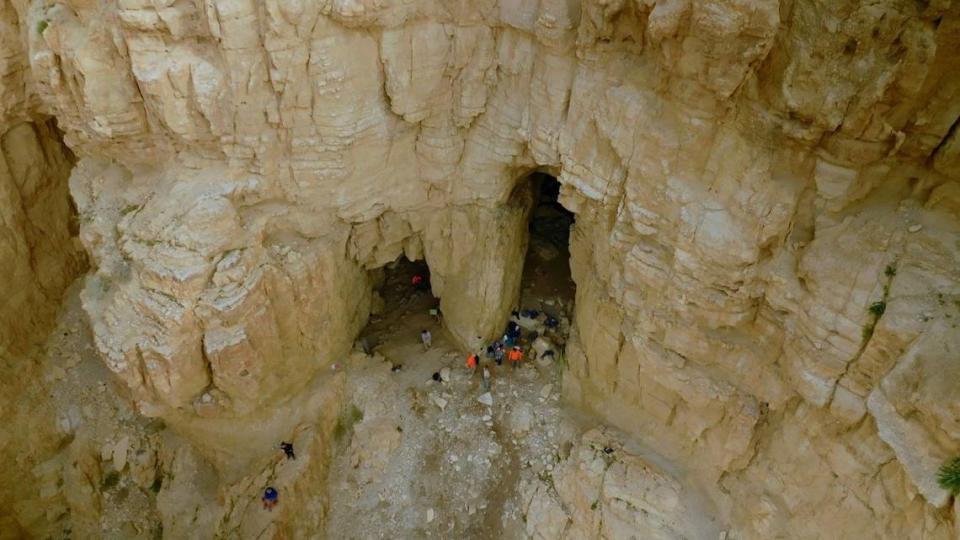A refugee hid a box of coins in an Israeli cave 2,200 years ago. It was just found
Some 2,200 years ago, ahead of the Maccabean revolt and impending war, a refugee fled to the Judean Desert in Israel with a small wooden box of his possessions.
At the bottom of the box, he padded some silver coins with sheep’s wool, then added a layer of purple wool before packing the box with dirt and stones. Then, he found a cave and stowed his box in a crack in the rock, intending to come back and retrieve his belongings.
He never returned.
At least that’s what experts at the Israel Antiquities Authority think, according to a Dec. 13 news release.
During a May 2022 excavation in the Darageh Stream Nature Reserve, which overlooks the Dead Sea, archaeologists said they discovered the small wooden box with 15 silver coins dating back more than 2,200 years. The box was hidden in Muraba’at Cave.
After further research in the Israel Antiquities Authority metal finds laboratory, experts determined the coins were minted under Egyptian king Ptolemy VI, they said.

Using this timeline, researchers said the hidden box was likely linked to the Maccabean Revolt and the beginning of the war against Antiochos Epiphanes IV, who created laws against Judaism. The end of the revolt was marked by the first celebration of Hannukkah, according to the World History Encyclopedia.

The discovery indicates the first explicit evidence that Judean Desert caves played a role in the Jewish rebellion, according to Eitan Klein, who studied the coins.
“It is interesting to try to visualize the person who fled to the cave and hid his personal property here intending to return to collect it. The person was probably killed in the battles, and he did not return to collect his possessions,” Klein said.
The coins will be displayed at the Hasmonean Museum in Modi’in during Hanukkah, said Zeev Elkin, minister of construction and housing, Jerusalem and heritage.
“This moving find, coming just before the festival of Hanukkah, is symbolic, emphasizing once again the importance of our activity in the field of heritage,” Elkin said.
Bones uncovered in Denmark believed to be human sacrifice from thousands of years ago
Gold jewelry uncovered in Egypt could reveal more about life 3,000 years ago. See photos
10,000-year-old carving of man holding his genitals is oldest known narrative carving

